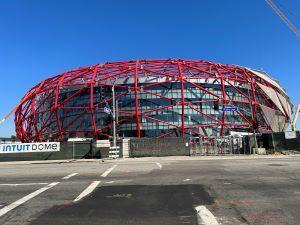A California appeals court has ruled that marijuana crumbs on the floorboard of a car can be probable cause for a vehicle search, Maine moves forward on clearing the criminal records of marijuana offenders, and more.

Marijuana Policy
California Appeals Court Rules Marijuana "Crumbs" Are Grounds for Vehicle Search. Marijuana is legal in California but carrying it in an open container in a motor vehicle is not, and now a state appeals court has upheld a search based on an open container violation -- even though there was no container involved. The 3rd District Court of Appeal stuck by a lower court ruling that police seeing a small but usable amount of loose marijuana "crumbs" on a vehicle floorboard could justify a police search if there are other suspicious circumstances that provide reasonable grounds to suspect an illegal amount of marijuana in the car or other violations of regulations. The court cited the state's open container regulation as just such a regulatory violation.
The case arose when Sacramento Police searched the vehicle of Davonyae Sellers in November 2021 and noticed a rolling tray in the back seat. Police then spotted "crumbs" of marijuana on the floorboard, and then searched the vehicle, finding 0.36 grams of weed and a handgun. Sellers was then charged with unlawful possession of a firearm. He then filed a motion to suppress the evidence as the fruit of an unlawful search.
The appeals court ruled that the loose crumbs were contraband and provided probable cause for a search because they were not in a closed container. "Even if we were to conclude the loose marijuana was not contraband" the observation of a legal amount of useable marijuana "may support a finding of probable cause if it is coupled with other factors contributing to a reasonable belief that the vehicle contains contraband or evidence of criminal activity."
Justice Elana Duarte dissented, writing, "The majority rejects a concession by the Attorney General to hold that an open container violation does not require the existence of a container, whether open or closed. It then alternatively and cursorily concludes that the sum of… legal and innocuous events constitutes a 'totality of the circumstances' justification for a warrantless vehicle search. I cannot agree with the majority on either of these points."
Maine Law Allows for Past Marijuana Offense Records to Be Sealed. A new law that went into effect earlier this month allows people to get their marijuana offense records sealed. Maine legalized recreational marijuana use in 2017, but Mainers' criminal records for possession and cultivation prior to legalization remain. Last year, the legislature voted down a proposal to automatically seal past criminal records for marijuana offenses, but this year, it approved allowing individuals to move to clear their records.
"This is a great first step for people to clean the slate in terms of their history for employment, as well as other purposes," said criminal defense attorney Matthew Morgan, a legislator who worked on the proposal. "There still will be some professional licensing agencies and law enforcement that will be able to access these records," Morgan explained, "but otherwise they will be sealed and people are allowed to indicate they do not have a criminal record based on the sealing."
Morgan sits on the legislature's Criminal Records Review Committee, a temporary body established to consider ways to limit public access to criminal records for nonviolent offenses and marijuana-related offenses.
Alcohol Policy
California Bill to Let VIP Lounge at Intuit Dome Sell Booze Until 4:00am Draws Opposition. The legislature has passed a bill that would let billionaire Steve Ballmer sell alcohol at the VIP lounge of his Intuit Dome Arena until 4:00am even though all other alcohol sellers in the state must stop sales at 2:00am. The measure, Assembly Bill 3206, is now on the desk of Gov. Gavin Newsom (D), and groups concerned with alcohol policy are calling on him to veto it.
"If the Governor does not veto this bill, it will not only create a very real threat to health and safety throughout the LA area, but it will set a horrible public policy precedent for the entire state," said Cruz Avila, Executive Director of Alcohol Justice. "There will surely be a flood of copycat district bills to follow from other legislators being pressured by billionaire arena owners and alcohol sellers in their districts demanding the same dangerous privilege."
The groups argue that allowing later alcohol sales in just that one venue will "expose surrounding communities -- in fact, the entire LA basin -- to increased harms and costs while only the alcohol sellers in the epicenter of Ballmer's dome see the marginal economic benefits."
They cite an analysis by the Oakland-based Alcohol Resource Groups, a project of the Public Health Institute. "The High Cost of the 4 A.M. Bar Bill" was a first-of-its-kind cost-benefit analysis detailing the effects of changing state alcohol policy to allow later last call at bars, restaurants, and clubs. The analysis disturbingly documented the worst concerns of Alcohol Justice and CAPA that public health and safety would be severely compromised if California's 2:00am last call fell."
This work by StoptheDrugWar.org is licensed under Creative Commons Attribution-ShareAlike 4.0 International
Add new comment